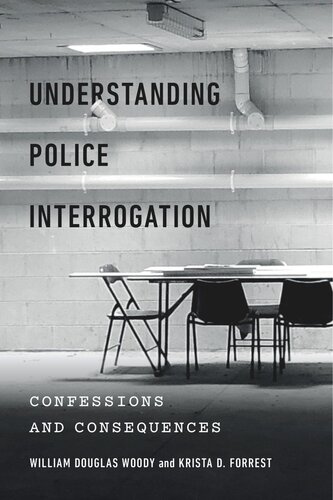

Most ebook files are in PDF format, so you can easily read them using various software such as Foxit Reader or directly on the Google Chrome browser.
Some ebook files are released by publishers in other formats such as .awz, .mobi, .epub, .fb2, etc. You may need to install specific software to read these formats on mobile/PC, such as Calibre.
Please read the tutorial at this link: https://ebookbell.com/faq
We offer FREE conversion to the popular formats you request; however, this may take some time. Therefore, right after payment, please email us, and we will try to provide the service as quickly as possible.
For some exceptional file formats or broken links (if any), please refrain from opening any disputes. Instead, email us first, and we will try to assist within a maximum of 6 hours.
EbookBell Team

4.4
12 reviewsUses techniques from psychological science and legal theory to explore police interrogation in the United States
Understanding Police Interrogation provides a single comprehensive source for understanding issues relating to police interrogation and confession. It sheds light on the range of factors that may influence the outcome of the interrogation of a suspect, which ones make it more likely that a person will confess, and which may also inadvertently lead to false confessions.
There is a significant psychological component to police interrogations, as interrogators may try to build rapport with the suspect, or trick them into thinking there is evidence against them that does not exist. Also important is the extent to which the interrogator is convinced of the suspect’s guilt, a factor that has clear ramifications for today’s debates over treatment of black suspects and other people of color in the criminal justice system.
The volume employs a totality of the circumstances approach, arguing that a number of integrated factors, such as the characteristics of the suspect, the characteristics of the interrogators, interrogation techniques and location, community perceptions of law enforcement, and expectations for jurors and judges, all contribute to the nature of interrogations and the outcomes and perceptions of the criminal justice system. The authors argue that by drawing on this approach we can better explain the likelihood of interrogation outcomes, including true and false confessions, and provide both scholars and practitioners with a greater understanding of best practices going forward.